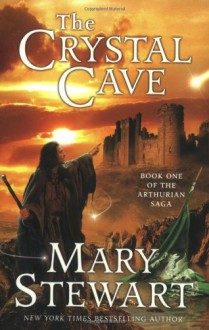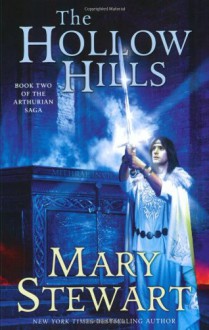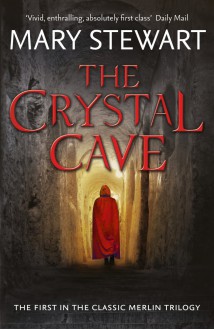
You certainly have to love the occasional lyric poetry, especially when it is about the end of everybody’s favourite legendary English king, Arthur Pendragon. Actually, I’m not sure if that is actually his last name, though it seems that this guy, and the legend that surrounds him, is much like Robin Hood – he may have existed, he may not have, but a huge legend has arisen around them while there doesn’t actually seem to be any consistency in these legends. In fact, this particular book contains two contrasting versions of his death, though the common feature is that he was killed by Mordred (though whether Mordred was his son or not is also up in the air because one of them suggests that he is, while the other suggests that he is just naughty lord).
Anyway, these two poems contain literally everything, and it is no wonder that the story of Arthur has been picked up by so many authors and film makers, and the stories that come out of it are vastly different in nature. For instance there was a film from the eighties called Excalibur which focused much more on the fantasy elements, with Excalibur, Merlin, and a tragic end as he searched for the holy grail. Another version (named King Arthur), was set during the times when the Romans pulled out of England, and Arthur was basically a Knight from the other side of the empire and was fighting to stop the Picts from overrunning the England.
There was also this book I remember called The Mists of Avalon, which I remember seeing as a kid, but never getting around to reading it, probably because upon looking at it I came to the conclusion that it was the thickest book ever written – in fact it was huge. Mind you, there are probably much, much thicker books these days, but that one still sits in my mind as being pretty thick. Oh, and we cannot forget to mention this all time classic.
As I previously mentioned there are two versions of the story, both of them dealing with Arthur’s death, so there is no mention of Merlin, nor of the sword, nor of the Lady in the Lake (or the test to remove the sword from the stone). In fact both stories seem to eschew the fantasy elements and come across much more historical. Anyway, the first story deals with Arthur going on conquests across Europe and coming to blows with the Emperor of Rome. He eventually defeats the emperor, however discovers that back in England Mordred has taken the throne for himself. Mind you, after going to war with Rome, Arthur has actually lost a lot of men, but with the handful of men he does have he returns to England, confronts Mordred’s much larger army, and defeats Mordred while dying in the process.
There are a couple of things that come out of this story, one of them being the plot where the King is abroad and the person keeping the throne warm decides to name himself as king. This is something that has happened a number of times in history, but the one event that comes to mind is that of Richard II (of which I have written two blog posts, the second being here). Mind you, I would hardly equate Arthur with Richard, particularly since if it wasn’t for Shakespeare’s play he would probably be little more than a footnote in history – Arthur is a legend. Mind you, it is noticeable that both die, because we can’t have Mordred defeating Arthur and giving us an evil laughter and riding off into the sunset. Mind you, even in Shakespeare’s tragedies the bad guy eventually gets it in the neck. In a way it seems as if you simply cannot have a situation where the bad guy wins, and the good guy simply cannot come back and eventually win the day – it is almost as if it is anathema in literature.
The other thing is how Arthur pretty much conquers Europe. This is taken directly out of History of the Kings of Britain, and seems to attribute the barbarian invasions of Rome to being an invasion let by Arthur. Mind you, Monmouth puts Arthur around 700 AD, which is sometime after Rome collapsed, but it is interesting how we have no record of any legendary king carving out a huge empire in Europe. However, it should also be noted that this is one of those empires that exists only on the personality of a single man, and it appears that after his death the kingdom pretty much disintegrates. Another thing that I have noticed is that Bede seems to have a gap in his Ecclesiastical history right around the time Monmouth has Arthur appear. That’s not to say that I am suggesting Arthur existed because, other than Charlemagne, there doesn’t seem to be any evidence of a king establishing an Empire on the Continent, especially one where the throne was in England.
Mind you, this whole thing reeks of nationalism, yet it is interesting that England did have an identity as far back as the 10th century. Monmouth also suggested that two English Kings were responsible for crossing the channel in around 400 bc, conquering Europe, crossing the Alps, and sacking Rome. Obviously what is happening here is a medieval version of ‘Fake News’, though it is probably better described as being ‘fake history’ (though the Romans seems to have a lot of problems with this fake history) – this is history that really has no substance to it, and no archaeological support. Mind you, writers of history back in those days really didn’t take the academic and scientific approach that we do today (though all history is still tainted by opinion), but rather wrote from the legends that were in vogue.
The second story is pretty much the same (that is about how Arthur died), however it’s focus is more on the love affair between Lancelot and Guenevere. In fact, this affair could be considered one of the greatest affairs in literature (okay, there are probably others, but I really have no interest in stories about love affairs – I would call them forbidden love but it sounds so clichéd – still, something that you can’t have always seems much more desirable than something that you can). Whereas the first story has a lot more action and large scale battles, this one has a lot more intrigue where people are being killed, and then the murder is being covered up, and there is adultery, poisonings, duels, and finally King Arthur’s death.
In a way this is an incredibly painful episode to watch because we all know how it is going to end – badly – especially since Lancelot is one of Arthur’s most trusted knights. However, this episode is set mostly in the court of Camelot, and doesn’t even have any mention of wars and expeditions to foreign lands. Actually, come to think of it there is always the story of David and Bathsheba in the Bible – that’s a pretty well known love affair, but I digress. Anyway, it seems as if the story of Arthur is a story of betrayal, with his wife and best friend having hanky panky behind his back, and Mordred going off and stealing his throne (and dying in the process).
Anyway, before I finish off, I probably should end with this cartoon, especially considering the state of politics these days:
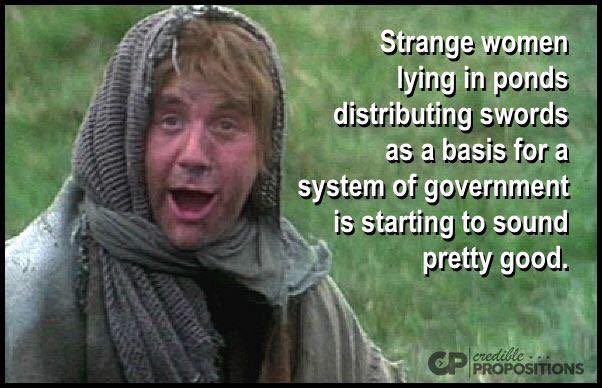
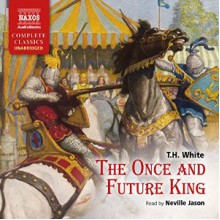

 Log in with Facebook
Log in with Facebook 
